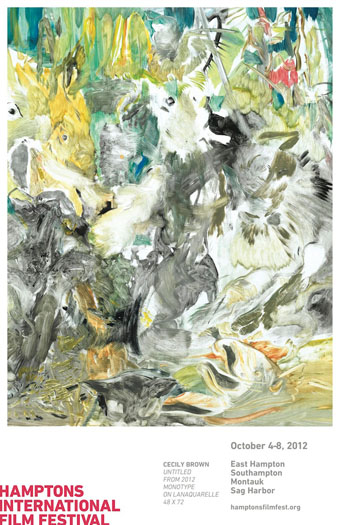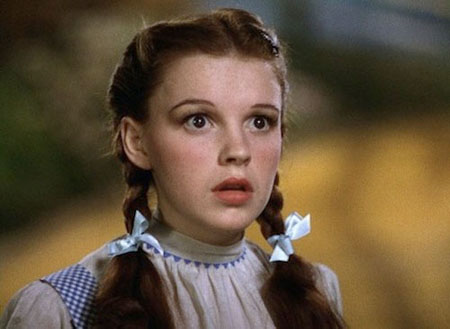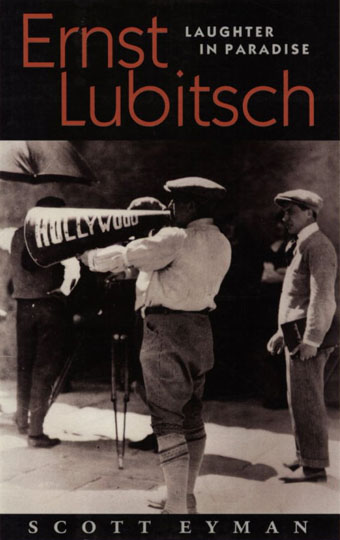Festivals are popping open all over today. One click over, you’ll find our own Jonathan Marlow recommending ten films to catch at the Mill Valley Film Festival (on through October 14), and the San Francisco Bay Guardian and Michael Hawley have written up several capsule previews as well. SFBG‘s Cheryl Eddy emphasizes that “indie cinema fans won’t want to miss Strutter. It doesn’t have any movie stars, but it comes courtesy of indie heroes Allison Anders (1992’s Gas Food Lodging, 1993’s Mi vida loca) and Kurt Voss, Anders’s co-director and co-writer on 1987’s Border Radio and 1999’s Sugar Town.”
For the New York Daily News, Elizabeth Weitzman previews the Hamptons International Film Festival (through Monday); the Tacoma Film Festival (through October 11) opens with Mark Jarrett’s The Taiwan Oyster; and Twitch‘s Brian Clark picks ten films not to be missed at the Sitges International Fantastic Film Festival of Catalonia (through October 14): “Think of it as a greatest hits mix of genre and underground film from the festival and theatrical circuit over the last year with some new and left-field titles thrown in for good measure.”
In other festival news, AFI FEST 2012, running November 1 through 8, has announced the lineups for its Young Americans and New Auteurs sections, which is particularly exciting news for me, as I’ll have the privilege of joining Dana Harris (indieWIRE), Gregg Kilday (Hollywood Reporter), and Bérénice Reynaud (Senses of Cinema) on the New Auteurs jury.
Reading. “To discover the lists of other critics and directors—it’s when one feels like a little child in the schoolyard, exchanging marbles of every scale and color.” That’s Nicole Brenez in the fourth part of the ongoing discussion at Sight & Sound of this year’s “Greatest Films of All Time” poll. The other participants this go-round are David Jenkins, Kevin B. Lee, and Bill Georgaris.
“The disadvantage of ‘acting,’ even as an extra, is that one must forfeit the privileges of a spectator; so it was not always apparent to me why Bresson asked for another take, although it seemed to be usually a matter of the tempo and rhythm of the movements of Marthe and Jacques.” Jonathan Rosenbaum‘s just posted his 1971 piece on the two days he spent on the set of Four Nights of a Dreamer.
For the Chronicle, Leah Churner‘s spoken with several Austinites involved in the making of David Byrne’s True Stories, “a multimedia avant-garde extravaganza packaged in the unlikely format of a PG-rated musical about the 1986 Texas Sesquicentennial.” She’s also looked up “an unpublished manuscript in Spalding Gray’s archive at the Harry Ransom Center [in which] the late monologist described Byrne as ‘the most perversely wholesome person I have ever met, like grapefruit with salt or green beans with sugar.'” She writes:
From form to content, True Stories was remarkably prescient. Byrne’s boxy compositions predict Wes Anderson’s diorama-films; This American Life‘s Ira Glass echoes Byrne’s dorky-whimsical mode of direct address; “perversely wholesome” is the perfect description for Jack Black in Richard Linklater’s Bernie. Shades of True Stories appear in any number of “quirky middle-America” hits of the 2000s, from Best in Show to Napoleon Dynamite to TV’s Parks and Recreation. Several “fringe elements” highlighted in Byrne’s screenplay have gone on to become staples of mainstream culture: yoga, online dating, and the cult of Steve Jobs. Most uncanny is Gray’s dinner-table monologue, which predicts the passion-driven incentives of the tech economy, the impending obsolescence of job security, pensions, overtime, and the end of leisure as advances in technology push us to work 24/7: “Linda! Larry! There’s no concept of weekends anymore!”
Pedro Almodóvar on last week’s protests in Madrid: “The government’s spokespeople, the president himself, can narrate what happened at Neptuno Square as they please—they do it every day. But, fortunately, in modern times, it is impossible to be the sole narrator, no matter how many punches cops dole out to anyone toting a camera.”
“I am fascinated by the image of the voice—not just the image of the image—and what’s behind Judy Garland’s.” Masha Tupitsyn at berfrois.
For Movieline, Jen Yamato talks with Joe Swanberg about V/H/S, the horror anthology he’s contributed to, and Drinking Buddies, his forthcoming film featuring Olivia Wilde, Anna Kendrick, Jake Johnson, and Ron Livingston.
Cinema deathwatch. Tom Shone on David Denby: “What he really means is ‘movies are not aimed at me any more.'” James Wolcott: “See, I think these death knells over the movies aren’t just about the movies, they’re about the particular form of mopy entropy to which intellectuals are prey. In a notorious essay for the quarterly Modern Occasions called ‘Some Animadversions, Some Laughs,’ Saul Bellow seized upon how much in love with uneaseful death intellectuals were in their prognoses. The Death of the Novel. The Death of God. The Death of the West…. The lyrics may change as they come and go, but the malady lingers on.”
Similarly, but bringing it back to cinema, Matt Singer at Criticwire: “[Rudolph] Arnheim‘s essay, ‘The Film Critic of Tomorrow,’ wouldn’t have looked much out of place if it had been published yesterday on Slate in response to Denby’s piece. In fact, it was written over 70 years ago, in 1935. And it was brought back into the public consciousness in 1998, in a superb essay by J. Hoberman entitled ‘The Film Critic of Tomorrow, Today,’ at yet another moment when the discourse about film and criticism began to edge toward doomsday predictions. Now it’s 2012, and here they come again. It’s as if the Mayans prophesied the fall of cinema along with the fall of civilization.”
Chicago. As an antidote to “the magical spate of cinema-is-so-fucking-over articles,” Ray Pride, writing at Newcity Film, suggests Mark Cousins‘s The Story of Film: An Odyssey, the 15-part doc screening weekends from this one through November 17 at the Music Box: “It’s sometimes ragged and some historical assumptions could weather challenge, but it’s film criticism as conspiracy, of shared sensation and understanding.”
Los Angeles. Susan King rounds up local goings on in the Times.
New York. Konstantin Bojanov’s Avé, at MoMA through Monday, is “more memorable and fascinating than a great deal of modern road movies, never mind post-adolescent romances,” writes Chris Cabin in Slant. More from Joe Caramanica in the NYT and Eric Hynes in the Voice, where Nick Pinkerton previews two end-of-days festivals, Apocalypse Soon (today through Sunday at BAMcinématek) and the Doomsday Film Festival & Symposium (October 19 through 21 at 92Y Tribeca).
Austin. “In Scott Eyman’s research-rich 1993 biography Ernst Lubitsch: Laughter in Paradise, he recounts an audience preview card for greatest hit Ninotchka that nails his appeal in a manner that doubled over the director himself. ‘Great picture. Funniest film I ever saw. I laughed so hard, I peed in my girlfriend’s hand.'” For the Chronicle, Raoul Hernandez previews the Austin Film Society’s Essential Cinema series Late Have I Loved Thee: Latter Lubitsch, running five consecutive Tuesdays starting on October 9.
Seattle. Charles Mudede in the Stranger on tonight’s screening at the Seattle Art Museum: “This is what I love most about Mildred Pierce: the woman who plays the Pierces’ maid, Butterfly McQueen. When she appears on the screen, my heart fills with warmth and joy—her high-pitched voice, her down-to-earth face, her lively eyes. Most of the world knows McQueen as Prissy, Scarlett O’Hara’s maid in Gone with the Wind, but I know her as a humanist and atheist who hated playing the only roles Hollywood would give to black women, roles that always made her a servant to women who were spiritually and intellectually beneath her. Burn, Hollywood, burn. (I listened to Sonic Youth’s ‘Mildred Pierce’ while composing this review.)”
Vienna. Luke Fowler‘s at the Austrian Film Museum tonight.
In the works. “Lynne Ramsay looks to be one step closer to bringing her ambitious science fiction take on Herman Melville’s classic tale of brooding obsession on the high seas, Moby-Dick, to the big screen,” reports the Guardian‘s Ben Child.
Lana and Andrew Wachowski have teamed up with Babylon 5 creator J. Michael Straczynski on Sense8, a TV show they’re shopping around, reports Margaret Lyons at Vulture.
For news and tips throughout the day every day, follow @KeyframeDaily on Twitter and/or the RSS feed. Get Keyframe Daily in your inbox by signing in at fandor.com/daily.






